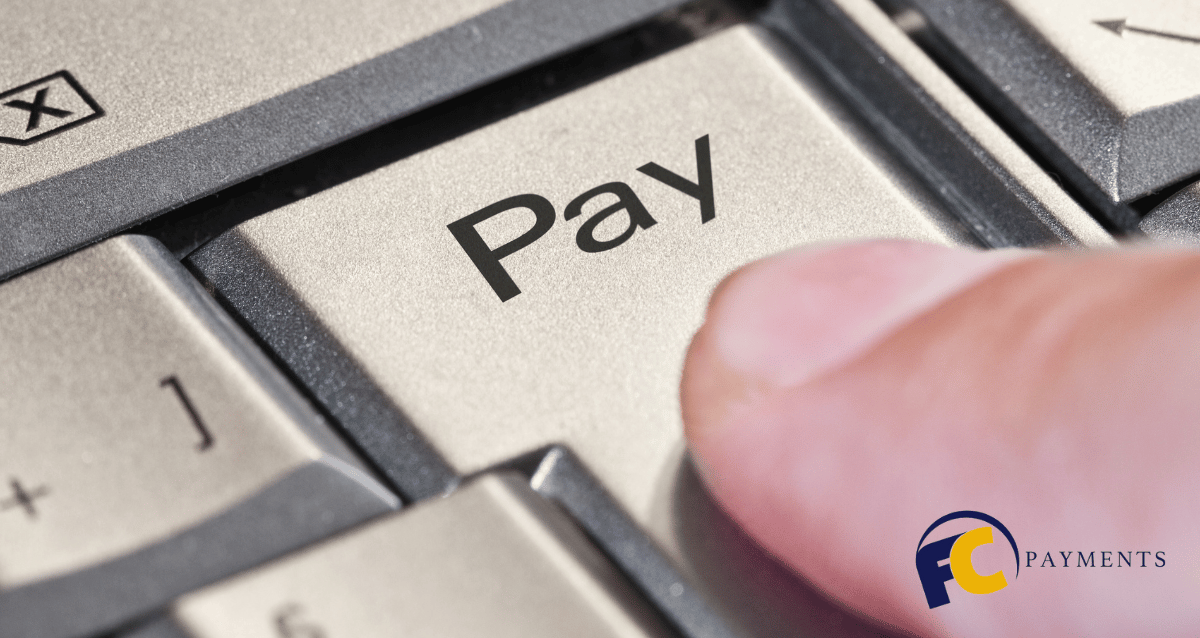
Can You Use Zelle for Business? The Truth Revealed
Do you need a safe, cost-effective payment system for your business? Zelle has come to the rescue! In this informative guide, we’ll explain how using Zelle can be advantageous and disadvantageous for businesses compared to other digital money transfer platforms. With all of these details in mind, you’ll have everything required to make an educated decision on utilizing Zelle as your go-to payment solution.
Key Takeaways
- Zelle for Business provides a simple and cost-effective solution to securely transfer funds instantly.
- Benefits include fast transfers with no transaction fees, expanded payment options, and streamlined payments.
- Potential drawbacks include limited international usage, lack of purchase protection, varying bank policies, and potential fees. Businesses should check their institution’s specific policies before use.
Understanding Zelle for Business
Small businesses are eligible to use Zelle for their financial transactions. This service offers quick money transfers directly from bank accounts, providing an alternative solution compared to using a credit card terminal or invoicing system. It also provides easy and economical access for smaller firms that may be struggling with traditional methods of payment processing.
How Zelle Works for Businesses
Small businesses have limits on transfers that they are able to make with Zelle. They can process one transfer of up to $15,000 or 20 transactions of $750 within a 24-hour span through their corporate bank account. It’s not possible for them to enroll using a debit card and must use the business bank accounts instead. Connecting with your corporate banking allows instant money transfer as well as digital records-keeping abilities offered by Zelle for companies in particular.
Eligibility Requirements
Businesses who wish to use Zelle should have a business bank account with an institution that offers it. This is important since each financial organization has different limits for transfers, and the transaction regulations can vary. It’s critical to check on your particular restrictions before executing any transactions through this service.
Once all of these factors are established, businesses will be able to reap numerous benefits from utilizing Zelle.
Benefits of Using Zelle for Business
Employers and contractors may benefit from using Zelle for their business transactions due to the convenience of fast transfers with no additional transaction fees and because it can be an alternative to PayPal. It also provides a variety of payment options, which can be helpful in streamlining payments between businesses, customers, employees, or contractors. When considering utilizing this platform, though, it’s important to recognize potential taxation implications that could arise by using Zelle for such purposes.
Can I Pay Employees with Zelle?
Utilizing Zelle to pay workers or freelancers may not be the best idea for payroll activities, as it could lead to taxation issues and lots of paperwork. Businesses should opt for a dedicated payroll service that will facilitate precision record-keeping while also complying with tax laws. This choice guarantees that all obligations are properly taken care of without any complications along the way.
Fast and Convenient Transfers
By employing Zelle for business, companies can capitalize on the advantage of quick and convenient bank transfers. This system eliminates the requirement to use cash or checks while allowing businesses to expedite payments both received and sent.
With its help, firms are able to manage their finances with ease as well as gain a better grasp of all transactions thanks in part to using this particular platform.
No Transaction Fees
When using Zelle for business, one of the greatest benefits is that there are no transaction fees associated. However, it’s important to check with your bank or credit union if any extra charges may be put in place when utilizing this service. Certain financial institutions have added their own restrictions or included costs. In fact, credit unions and other related entities should all be researched prior to use.
Are Zelle Payments Taxable?
When it comes to Zelle payments, taxes must be reported. It is up to the recipient of such transactions to report them according to IRS regulations. Maintaining an accurate record of all related activity from this app-based system is essential for businesses so as not to violate any tax laws. Consequently, Zelle does not levy a fee on its transactions. Recipients are still responsible for making sure that their earnings get adequately documented and declared correctly.
Expanding Payment Options
Businesses can offer Zelle as a payment option to make the process easier, faster, and more secure. This allows customers to pay without using cash or checks, which provides increased satisfaction and leads them back for future purchases. By incorporating this convenient method of payment into their services, businesses will enhance customer loyalty.
Potential Drawbacks of Zelle for Business
Businesses using Zelle can benefit from its convenience, but there are also downsides to consider, such as limited international access and the lack of purchase protection. Different banks may have their own policies regarding the use of the service. To explore these drawbacks, let’s take a look at each element in more detail.
Limited International Use
For those who need an international payment system, Zelle may not be the best option as it only permits domestic operations in the United States. Companies with customers or operations beyond American borders should consider other digital methods, such as PayPal and Venmo, for their financial transactions. If you are looking to carry out domestic payments within US boundaries, then Zelle can prove a useful service provider.
Lack of Purchase Protection
When it comes to digital payment options, Zelle does not offer purchase protection for its transactions. This means that neither customers nor businesses may be covered in the case of fraudulent purchases or defective goods, making this option unsuitable for specific kinds of deals. Subsequently, due to a lack of purchase coverage by Zelle, both buyers and vendors find themselves choosing alternative methods rather than utilizing this service as their preferred choice.
Inconsistent Bank Policies
When using Zelle for business transactions, it is important that businesses understand the policies and limitations their bank has set in place with regard to these types of payments. Each institution’s parameters can vary, which may lead to confusion for both consumers and those utilizing Zelle within a corporate setting. Becoming familiar with what limits your particular bank allows when using this method of payment should be done ahead of time.
Does Zelle Charge a Fee for Business?
Utilizing Zelle for business transfers can be an efficient and dependable way of transferring money. Financial institutions may charge fees specific to its use when used in this manner. It is best that you check with your bank beforehand concerning any additional costs associated with utilizing Zelle’s services for such transactions.
Setting Up and Using Zelle for Business
Before starting the setup procedure for using Zelle Business, we will look into what it takes to open a business account with an associated bank and how payments are both sent out as well as received. Buckle up!
To begin with, opening up a Zelle Business Account requires registering at one of its participating banks. After that has been done, you can start sending and receiving money through this platform from wherever your clients may be located!
Opening a Zelle Business Account
To be able to use Zelle for business transactions, you will first need a participating bank that offers the service. You should verify that your particular bank supports it and then start their enrollment process with them in order to open up your very own Zelle Business account. Once everything is sorted out, you can begin using this convenient system right away!
Initiating and Receiving Payments
Once your Zelle business account has been set up, you can use it to conveniently initiate and receive payments with just a phone number or email address. You may send or request payment through online banking platforms and via the bank’s mobile app as well. Notifications will be sent when someone wants to make a payment into their account – simply accept this straight from there! It is a secure, simple process that you also have the option of setting recurrent payments for frequent customers.
Zelle vs. Other Digital Payment Options
When assessing Zelle compared to other digital payment options, factors such as cost, transaction ceilings, and global transfer capability must be taken into account. We will inspect how Zelle measures up with regard to the aforementioned criteria with alternative choices of payments.
Fees and Transaction Limits
With a Zelle business account, transaction limits may vary by bank. Regardless of this factor, though, no fees are incurred when sending or receiving money using the service, an advantage not found with other digital payment methods. Nonetheless, it is important to check your individual bank’s specifications regarding any potential costs related to utilizing a Zelle business profile and associated limits on transactions.
International Transactions
When it comes to international money transfers, Zelle’s capabilities are not as broad when compared with other digital payment platforms such as PayPal, Venmo, and Cash App. These others allow one to both send and receive funds on an overseas basis, while Zelle is limited in this regard.
As a result, businesses that require the ability to conduct international transactions should consider choosing alternatives that provide them with better convenience for their needs.
Tips for Safely Using Zelle for Business
When using Zelle for business purposes, it’s important to verify customer details and monitor the transactions in order to keep track of information accurately and identify any potential issues. Some tips when doing so include making sure you have appropriate confirmation of customers’ data as well as keeping an eye on your transaction records with Zelle. Doing this will enable one to be properly safeguarded while utilizing Zelle for their company’s operations.
Verifying Customer Information
Before sending payments with Zelle, make sure to verify the accuracy of customer information, such as their email address or mobile phone number. Consider trying a test transfer first (e.g., $1) to confirm everything is in order before transferring larger amounts of money.
Monitoring Transactions
It is essential to keep an eye on your Zelle transactions in order to guarantee the accuracy of documents and prevent potential issues such as deceitful activity or discrepancies in payments. Monitor all your transaction activities regularly and address any concerns instantly. Doing this can be beneficial for the upkeep of accurate records as well as recognizing irregular behavior quickly.
Zelle Business Account to Personal Account
When attempting to move money from a Zelle business account into your personal bank, make sure you are aware of any applicable fees and restrictions that might be in place at the financial institution. It’s important to abide by these rules when transferring funds between qualified accounts so as not to encounter issues or complications.
First Card Payments: Payment Processing Services
First Card Payments offers a comprehensive range of payment processing services, including credit card transactions, ACH transfers, and mobile payments – making it an ideal solution for businesses with varied needs compared to that provided by Zelle.
Plus, if your business is considered high-risk, you can apply for a high-risk merchant account with First Card Payments.
Full Summary
By understanding its advantages, drawbacks, and recommended usage for utilizing Zelle as a payment platform for business purposes, small enterprises can make an informed decision on whether it is the correct solution or not. However, using Zelle does have some restrictions, such as a lack of purchase protection and limited global application. When taking into consideration its speediness, safety, and affordability, it remains a viable option for many businesses.
Frequently Asked Questions
Can you do Zelle for a business account?
Yes, you can do Zelle for a business account, provided your bank or credit union offers it for your business account type. To use Zelle®, both parties must be enrolled directly through their financial institution’s online or mobile banking experience.
Zelle is a contactless and fee-free way to send money to friends, family, or businesses.
Is Zelle free for businesses?
Zelle does not impose any processing fees for business dealings, though certain financial institutions part of the Zelle network might charge a fee.
How much does Zelle cost for business?
When it comes to Zelle, no fees are involved in the service. Many banks will not charge customers for using this payment method either. Yet some may have an extra fee, so make sure you ask your bank about that before proceeding with a transaction through Zelle. In order to avoid any surprises regarding costs related to using their services, double-check if there is a fee at all associated with processing payments via this platform.
Can a Zelle business account send money to a personal account?
It is possible to transfer funds from a Zelle business account to an individual’s personal one. However, you should inquire with your banking institution if there are any charges for such action. Money can be sent as well between businesses that employ the service of Zelle® and people who have access through their mobile banking app.
Can I use Zelle to pay my employees?
Using Zelle to pay employees is not advised due to the potential consequences of taxes and paperwork that it may entail.
My interest in the financial world started to blossom in High School. However, my parents tell me I use to watch financial programs before the age of 5. So, I guess I was born with the Financial bug. In high school I was accepted into their Finance Academy, which I attended for 4 years. In addition to graduating high school, I accumulated a substantial amount of financial knowledge few people experience at such a young age. During which time, I won the State of Florida Stock Market Contest and I also finished in the top 100 in the CNBC stock market contest which had over 1 million participants throughout the country (including some of Wall Street’s elites) with a take home prize of $1 million. These achievements allowed me to be invited to many shows and events with top people in their fields of business from around the world.
No Comments
Sorry, the comment form is closed at this time.










